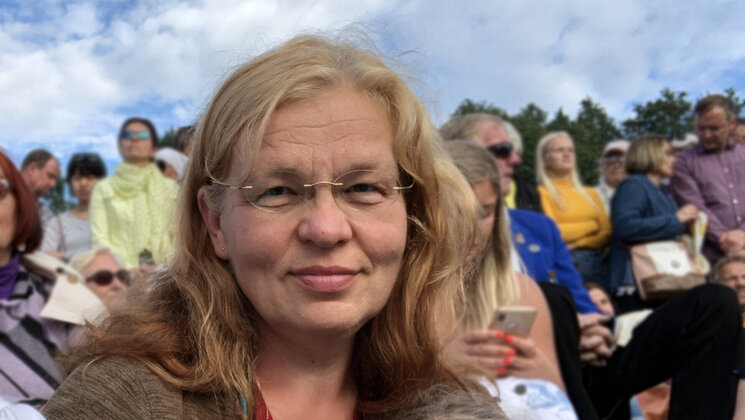-
Faculty of Arts and HumanitiesJakobi 2, r 116-121 51005 Tartu linn, Tartu linn, Tartumaa ESTJakobi 2 51005 Tartu linn, Tartu linn, Tartumaa ESTJakobi 2, IV korrus 51005 Tartu linn, Tartu linn, Tartumaa ESTJakobi 2, III korrus, ruumid 302-337 51005 Tartu linn, Tartu linn, Tartumaa ESTÜlikooli 16 51003 Tartu linn, Tartu linn, Tartumaa ESTLossi 3 51003 Tartu linn, Tartu linn, Tartumaa ESTÜlikooli 18 50090 Tartu linn, Tartu linn, Tartumaa ESTPosti 1 71004 Viljandi linn, Viljandimaa ESTJakobi 2 51005 Tartu linn, Tartu linn, Tartumaa ESTJakobi 2 51005 Tartu linn, Tartu linn, Tartumaa ESTFaculty of Social SciencesLossi 36 51003 Tartu linn, Tartu linn, Tartumaa ESTJakobi 5 51005 Tartu linn, Tartu linn, Tartumaa ESTLossi 36, ruum 301 51003 Tartu linn, Tartu linn, Tartumaa ESTNarva mnt 18 51009 Tartu linn, Tartu linn, Tartumaa ESTNäituse 2 50409 Tartu linn, Tartu linn, Tartumaa ESTNäituse 20 - 324 50409 Tartu linn, Tartu linn, Tartumaa ESTLossi 36 51003 Tartu linn, Tartu linn, Tartumaa ESTRaekoja plats 2 20307 Narva linn, Ida-Virumaa ESTRingi 35 80012 Pärnu linn, Pärnu linn, Pärnumaa ESTLossi 36 51003 Tartu linn, Tartu linn, Tartumaa ESTLossi 36 51003 Tartu linn, Tartu linn, Tartumaa ESTFaculty of MedicineRavila 19 50411 Tartu linn, Tartu linn, Tartumaa ESTBiomeedikum, Ravila 19 50411 Tartu linn, Tartu linn, Tartumaa ESTNooruse 1 50411 Tartu linn, Tartu linn, Tartumaa ESTL. Puusepa 1a 50406 Tartu linn, Tartu linn, Tartumaa ESTL. Puusepa 8 50406 Tartu linn, Tartu linn, Tartumaa ESTRavila 19 50411 Tartu linn, Tartu linn, Tartumaa ESTUjula 4 51008 Tartu linn, Tartu linn, Tartumaa ESTRavila 50411 Tartu linn, Tartu linn, Tartumaa ESTRavila 19 50411 Tartu linn, Tartu linn, Tartumaa ESTFaculty of Science and TechnologyVanemuise 46 - 208 51003 Tartu linn, Tartu linn, Tartumaa ESTNarva mnt 18 51009 Tartu linn, Tartu linn, Tartumaa ESTRiia 23b/2 51010 Tartu linn, Tartu linn, Tartumaa ESTRavila 14a 50411 Tartu linn, Tartu linn, Tartumaa ESTNarva mnt 18 51009 Tartu linn, Tartu linn, Tartumaa ESTRiia 23, 23b - 134 51010 Tartu linn, Tartu linn, Tartumaa ESTObservatooriumi 1 61602 Tõravere alevik, Nõo vald, Tartumaa ESTNooruse 1 50411 Tartu linn, Tartu linn, Tartumaa ESTJ. Liivi tn 2 50409 Tartu linn, Tartu linn, Tartumaa ESTVanemuise 46 51003 Tartu linn, Tartu linn, Tartumaa ESTVanemuise 46 51003 Tartu linn, Tartu linn, Tartumaa ESTArea of Academic SecretaryLossi 3 51003 Tartu linn, Tartu linn, Tartumaa ESTUppsala 6, Lossi 36 51003 Tartu linn, Tartu linn, Tartumaa ESTArea of Head of FinanceÜlikooli 17 51005 Tartu linn, Tartu linn, Tartumaa ESTArea of Director of AdministrationÜlikooli 18A (III korrus) 51005 Tartu linn, Tartu linn, Tartumaa ESTÜlikooli 18, ruumid 102, 104, 209, 210 50090 Tartu linn, Tartu linn, Tartumaa ESTArea of Vice Rector for DevelopmentNarva mnt 18 51009 Tartu linn, Tartu linn, Tartumaa ESTVanemuise 46 51003 Tartu linn, Tartu linn, Tartumaa ESTLossi 25 51003 Tartu linn, Tartu linn, Tartumaa ESTArea of RectorArea of Vice Rector for Academic AffairsUppsala 10 51003 Tartu linn, Tartu linn, Tartumaa ESTÜlikooli 18b 51005 Tartu linn, Tartu linn, Tartumaa ESTArea of Vice Rector for ResearchW. Struve 1 50091 Tartu linn, Tartu linn, Tartumaa EST
Doctoral defence: Andra Annuka-Loik "Laughter and smile voice in Estonian spoken interaction"
On 19 September 2023 at 14:15 Andra Annuka-Loik will defend her doctoral thesis "Naer ja naerev hääl eesti suulises suhtluses" („Laughter and smile voice in Estonian spoken interaction") for obtaining the degree of Doctor of Philosophy in Estonian language.
Supervisor:
PhD Tiit Hennoste, University of Tartu
Opponent:
PhD Maria Frick, University of Oulu (Finland)
Summary
Laughter is an acoustic construction without any readily apparent semantic or syntactic feature. To understand what the laughter is used for, one must look at the context it appears in. Laughter is often associated with humour – laughter and jokes are seen as inseparable. Although that is often the case, laughter has an important role in problematic situations. People may laugh when they want to mitigate problematic situations – for example they laugh when refusing a request or explain why they haven’t completed a task on the right time. Thus, laughter is used in both humorous and problematic situations. Smile voice – the second phenomenon discussed in this dissertation – is a change of voice quality, that often accompanies smiling. Previous research has shown, that smile voice can used in same situations as laughter – thus it is a device to mark non-seriousness and mitigate problems.
In this dissertation both everyday and institutional interaction are analysed to compare laughter in both conversational settings. The everyday conversations in this data collection include conversations between family members and friends and are held in the speaker’s homes. The institutional conversations include interactions between attendants and clients, shop clerks and clients. The data also includes segments of TV-shows. In this dissertation the author is analysing which types of laughter appear in Estonian data, how long are the laughs and smile voices, where is the laughter and smile voice placed inside a turn, what happens in the conversation after laughter and how is smiling and body movement associated with laughter. In all the topics mentioned before she also analyze how the results differ in everyday and institutional settings and in humorous and problematic situations
The results showed that laughter and smile voice are different in everyday and institutional interaction. For example, laughs tend to be longer in everyday conversations. Also, the placement of laughter is different in everyday and institutional interaction and in humorous and problematic situations. While in humorous situations the laughter and smile voice were more likely to take up the whole turn, laughter and smile voice in problematic situations were most likely placed at the end of the turn. The embodiment of laughter also varies – the movements that occurred during laughter that appeared in problematic situations, have much smaller amplitude than the ones in humorous situations.
Defence can be also followed in Zoom: https://ut-ee.zoom.us/j/93195633211?pwd=U3VrVXFWbEp4R3c0RmQxbGMxWUJiZz09 (Meeting ID: 931 9563 3211, Passcode: 389733).
Doctoral defence: Andra Annuka-Loik "Naer ja naerev hääl eesti suulises suhtluses" ("Laughter and smile voice in Estonian spoken interaction")
Read more similar news






